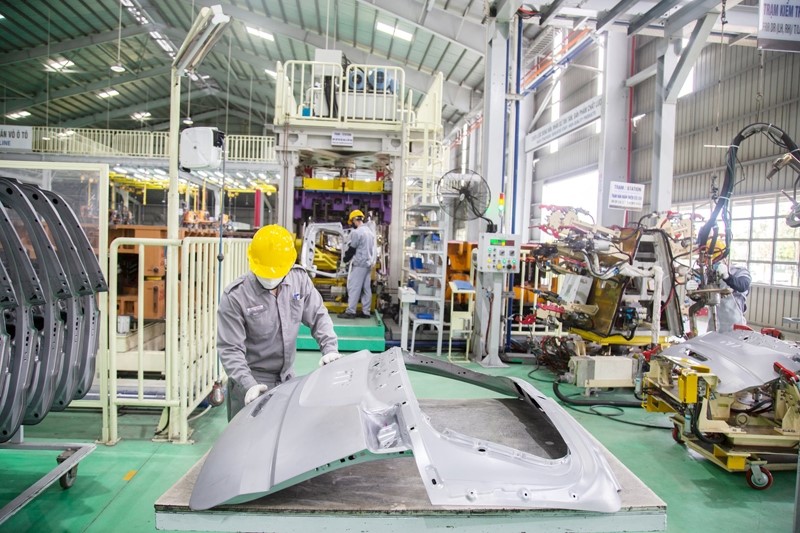Reducing carbon emissions from automobiles is considered a solution to achieving the net-zero emissions goal by 2050, which the government is striving for. This requires a strategic approach to developing a production line of environmentally friendly vehicles that use biofuels.
A promising market
Transportation is one of the largest sources of greenhouse gas emissions, significantly contributing to climate change. To achieve sustainable development goals, countries have been implementing various forms of green transportation, including new energy vehicles like electric cars, hybrid vehicles, environmentally friendly public transport systems, and supporting infrastructure.
In Viet Nam, green transportation has gradually taken shape with a variety of products from both domestic and imported enterprises. However, according to an analysis report from Vero's Tech & Mobility research department, a brand communications consultancy in ASEAN, electric vehicles account for only 0.7% of the total electric vehicles sold in Southeast Asia.
Despite this, experts and businesses remain optimistic about the potential of the green vehicle market in Viet Nam. Specifically, Viet Nam has a population of over 100 million, a significant proportion of which falls within the working-age demographic; the economy has consistently maintained high growth rates; and highway infrastructure continues to be robustly invested in and expanded. These factors present a substantial opportunity for the electric vehicle sector and new energy vehicles.
The automotive industry is undergoing significant technological changes, especially with new energy vehicles aiming for greener and cleaner operations. As a result, more modern fuel-efficient four-wheeled vehicles are emerging in the market, contributing to the reduction of smoke, dust, and noise pollution, gradually creating a new transportation landscape that aligns with the green development goal of achieving net-zero greenhouse gas emissions by 2050 for the transportation sector.

The automotive industry is undergoing changes towards a "greener" path (Illustrative image)
Towards green and clean transportation
Recently, the government and the business community have undertaken many practical actions to create new momentum for the automotive industry, paving the way for "green" vehicles and creating an environmentally friendly, green, and clean transportation space. The government has issued several policies aimed at green and sustainable development. Specifically, Decision No. 876/QĐ-TTg by the Prime Minister outlines a program for green energy transformation and carbon and methane emissions reduction in the transportation sector, setting an overall goal for green transportation development towards achieving Net Zero by 2050. The roadmap for energy transformation has been clearly outlined and is applicable across various sectors, including road, rail, inland waterways, maritime, aviation, and urban transport.
According to Decree No. 10/2022/NĐ-CP of the government regarding registration fees, within three years from the date this decree takes effect (March 1, 2022), battery electric vehicles will enjoy a 0% registration fee for the first time. In the following two years (from March 1, 2025, to March 1, 2027), the registration fee for the first time will be set at 50% of the rate applied to gasoline and diesel vehicles with the same seating capacity.
Despite the considerable potential, Viet Nam still faces numerous barriers in developing green vehicles. Mr. Vo Minh Luc, Executive Director of BYD Viet Nam, believes that policies to support the public in transitioning from traditional engine vehicles to new energy vehicles have not been vigorously implemented, and the roadmap remains unclear, especially in major cities. Additionally, the investment policy for the electric vehicle ecosystem lacks clarity, making it difficult to attract investors.
Experts propose that there needs to be close cooperation among the government, businesses, and consumers to develop green vehicles. Specifically, the government should continue to refine the legal framework and incentive policies, create a suitable electrification roadmap based on Viet Nam's conditions, and provide incentives for businesses investing in charging stations, such as land access and favorable loan conditions. Additionally, ministries and sectors must establish unified regulations on standards and procedures for investing in charging stations to facilitate businesses.